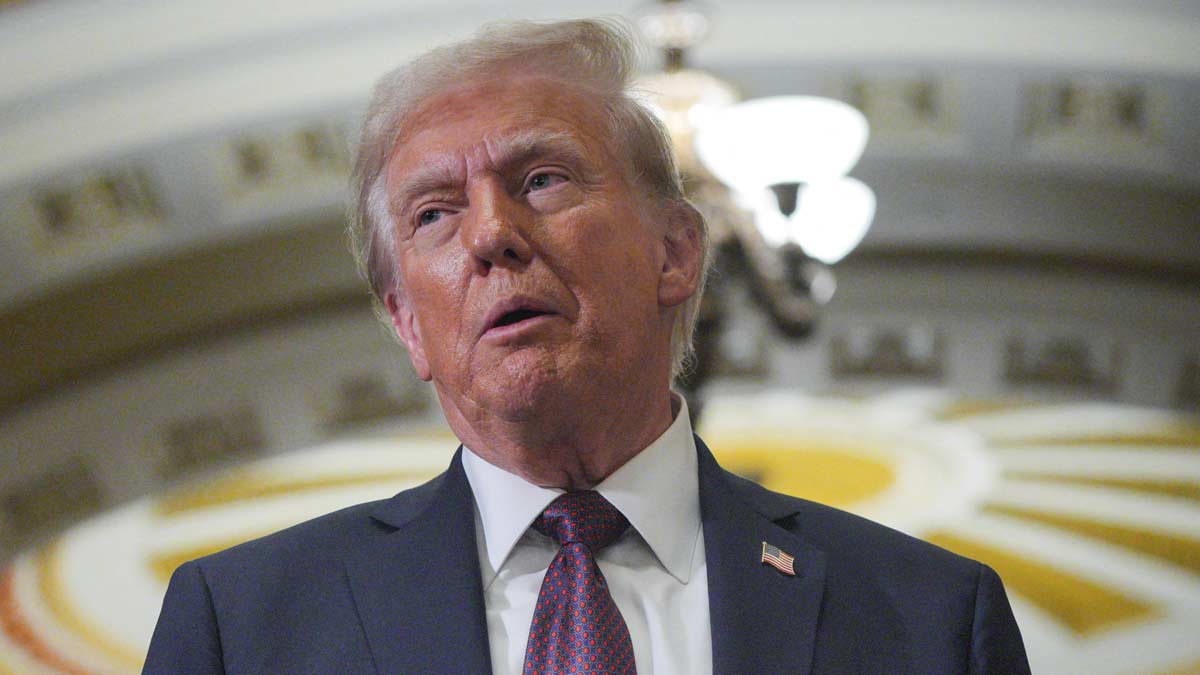Trump's Op Midnight Hammer a failure? Iran may resume uranium enrichment in months, warns UN nuclear watchdog
 US President-elect Donald Trump speaks after a meeting with Republicans in Congress at the US Capitol building in Washington | Reuters
US President-elect Donald Trump speaks after a meeting with Republicans in Congress at the US Capitol building in Washington | Reuters
Iran could begin producing enriched uranium again within months, despite recent strikes on its nuclear infrastructure by the United States and Israel, the head of the UN’s nuclear watchdog has said. Rafael Grossi, Director General of the International Atomic Energy Agency (IAEA), issued the warning amid heightened tensions and restricted access to Iran’s nuclear sites.
“They can have, you know, in a matter of months, I would say, a few cascades of centrifuges spinning and producing enriched uranium, or less than that,” said Grossi. On June 13, Israel launched a bombing campaign targeting Iranian nuclear and military installations, stating the aim was to prevent Tehran from acquiring a nuclear weapon. Iran has repeatedly denied pursuing nuclear arms. Days later, the US conducted its own airstrikes on three critical sites believed to support Iran’s atomic programme.
The extent of the damage remains unclear. Iranian foreign minister Abbas Araghchi acknowledged the severity of the strikes but said details were still being assessed. US President Donald Trump claimed the attacks had set Iran’s programme back “decades”. However, Grossi contradicted that view, noting, “Some are still standing.”
A major concern for the IAEA is whether Iran managed to move any of its stockpile of enriched uranium before the attacks. Iran is believed to have had around 408.6kg of uranium enriched to 60 per cent, far above civilian use levels but short of weapons-grade. If refined further, the material could yield more than nine nuclear weapons.
Grossi admitted the agency had no clear knowledge of the stockpile’s current location. “We don’t know where this material could be. Some could have been destroyed as part of the attack, but some could have been moved. So there has to be at some point a clarification.”
In response to the strikes, Iran’s parliament voted to suspend cooperation with the IAEA and blocked Grossi from visiting key facilities, including the Fordow enrichment site. Iranian authorities also dismantled surveillance cameras and accused Israel of stealing sensitive facility data. Grossi had requested access to verify the damage and monitor the remaining stockpiles but was denied.
The situation worsened when the vice speaker of Iran’s parliament, Hamid Reza Haji Babaei, formally announced Grossi’s ban during funerals for Iranian officials and scientists killed in the Israeli raids. State media suggested calls were growing for Grossi’s arrest or even execution, prompting sharp rebukes from international officials.
US Secretary of State Marco Rubio condemned the threats against the IAEA chief and reaffirmed American support for the agency. “We support the IAEA’s critical verification and monitoring efforts in Iran and commend the Director General and the IAEA for their dedication and professionalism,” he posted on social media. “We call on Iran to provide for the safety and security of IAEA personnel.”
Responding to European concerns, Iranian foreign ministry spokesman Esmaeil Baqaei defended the country’s nuclear stance. “How can you express concern over Iran’s peaceful programme that is under the most robust IAEA inspections and ignore the fact that the Israeli regime has a huge arsenal of nuclear weapons?”
Middle East